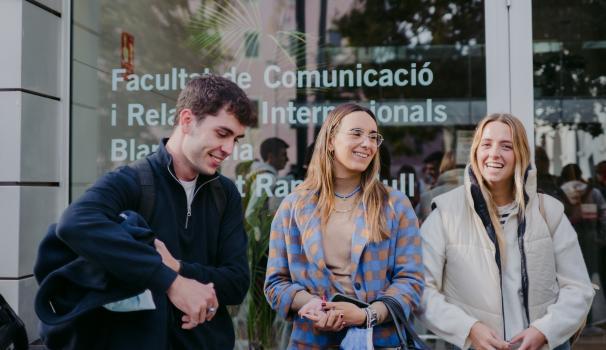Execution
You will learn how to create all kinds of audio-visual products. You will learn how to carry out an idea to make it succeed, starting with planning, filming, and post-production.
Enrolment open

8 a.m. to 2 p.m. / 11 a.m. to 6 p.m. / 3 p.m. to 9 p.m.
Blanquerna-URL - Plaça Joan Coromines. 08001 Barcelona
School of Communication and International Relations
The bachelor's degree in Audio-visual Communication at Blanquerna is aimed at students who want to train as professionals in film, television, and new digital media. With the highest degree of excellence, at the end of the student's education, they will be ready to effectively thrive within the world of audio-visual communication.
You will learn how to create all kinds of audio-visual products. You will learn how to carry out an idea to make it succeed, starting with planning, filming, and post-production.
You will know how to prepare everything involved in creating the audio-visual product to make it successful. We will teach you how to look for funding, how to hire technical and artistic staff, how to organize a shoot, and how to distribute and disseminate your product nationally and internationally.
We will teach you how to create the dialogues, scenes, and sequences of the audio-visual product. You will understand its production mechanisms, and we will give you the necessary tools to transform your ideas into a full script.
The bachelor's degree in Audio-visual Communication at Blanquerna-URL trains you to respond to the demands received from the audio-visual sector.
This track focuses on the advertising sector within the audio-visual world. They are taught as Digital Marketing, Audiences and Markets, or Corporate Identity and Culture.
This is the track closest to journalism. There are courses related to television production such as Digital Content Management, Audio-visual Genres and Formats, or Sound Pickup and Technique.
This track is the most technical of the three. There are courses related to cinema such as Photography Direction, Audio-visual Editing and Post-Production, or Sound Pickup and Technique.
employment rate (specific data for bachelor's degree, according to AQU)
of graduates find work in less than a year (AQU)
agreements with internship companies
international university agreements
A guaranteed future career.
The Blanquerna methodology is based on seminars, a core element in achieving personalized and qualitative learning and holistic training that includes not only academic and professional competencies but also personal and human skills.
With a focus on subjects with a theoretical component, master classes are taught by professionals and experts in a particular field, who offer guidance and support to their tutees in their particular disciplines, and build an ongoing academic and personal development relationship.
Seminar tutors work 6 hours a week with a maximum of 12 students. This establishes a relationship of trust between tutor and tutee and allows the monitoring of each tutees' progress. These sessions also help students to see the connections between what they are studying and their future professional careers.
We have agreements with leading multinational companies in the country, as well as private companies, and internal and external communication, business, marketing and public relations departments. The School has an agreement with more than 1,200 companies.
Studying abroad is a life-changing experience. We offer you the opportunity to take part in various exchange programs and internships abroad, as well as to participate in a variety of international cooperation programs.

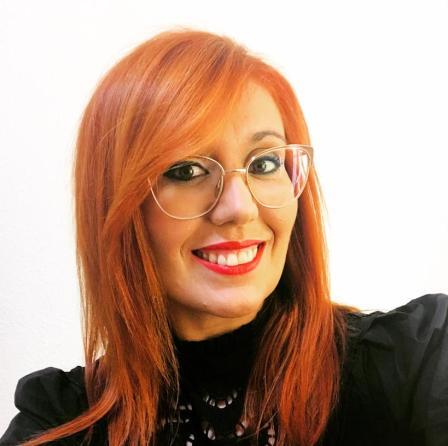
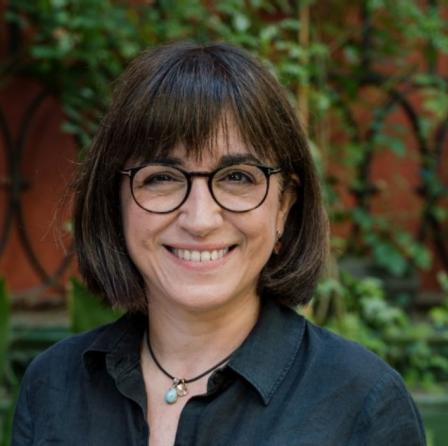
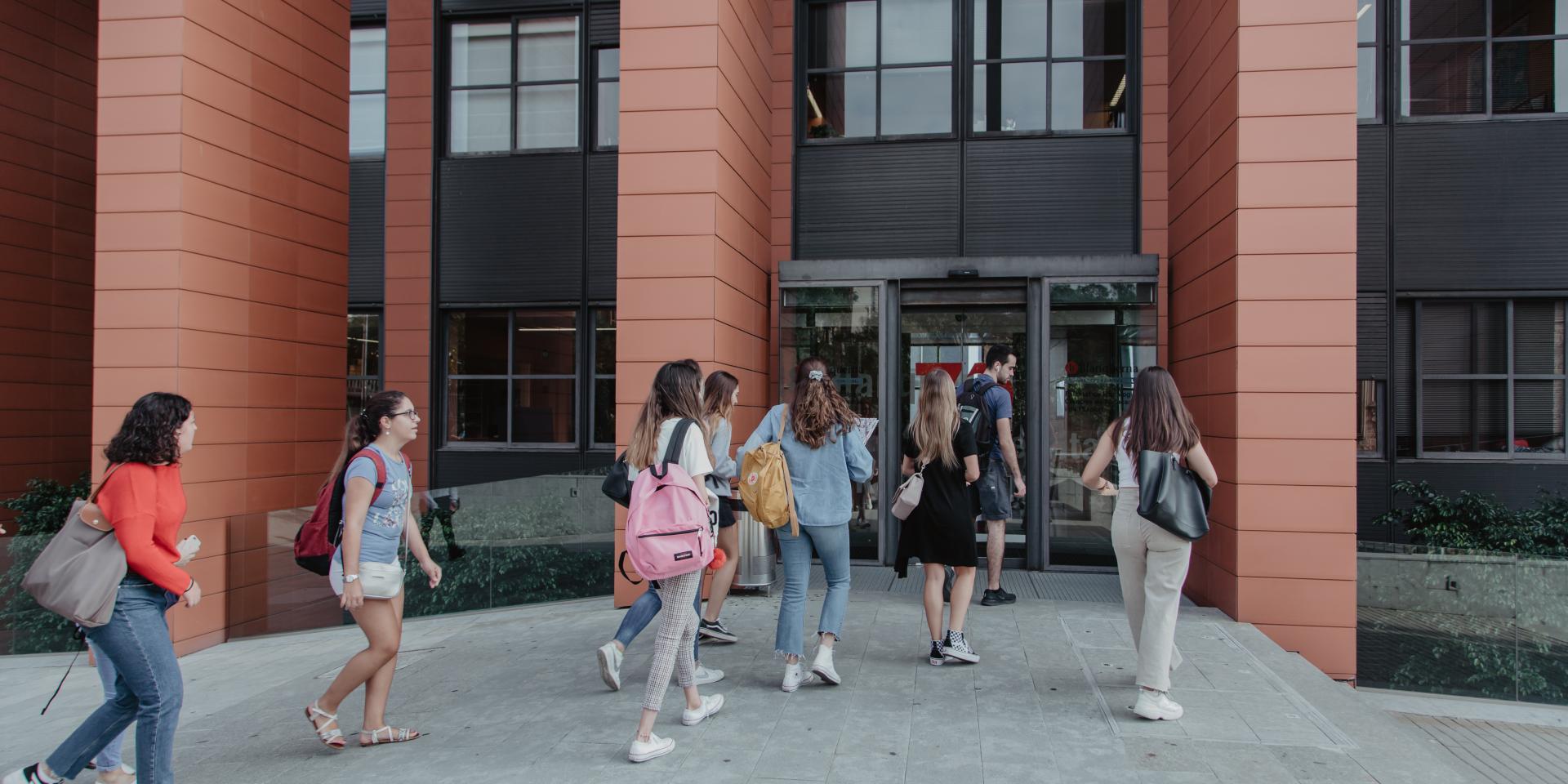
Study for two majors simultaneously, consecutively or following a track tailored to you
News
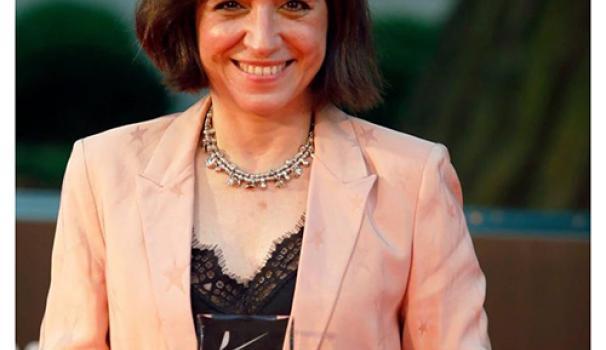
June 14, 2021
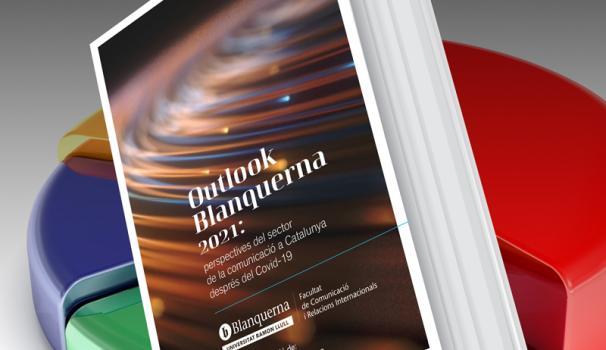
May 28, 2021

March 24, 2021
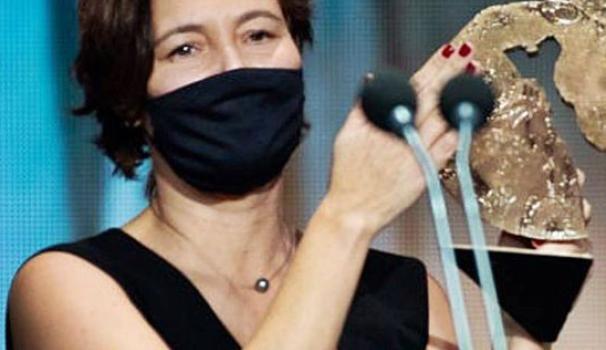
March 16, 2021
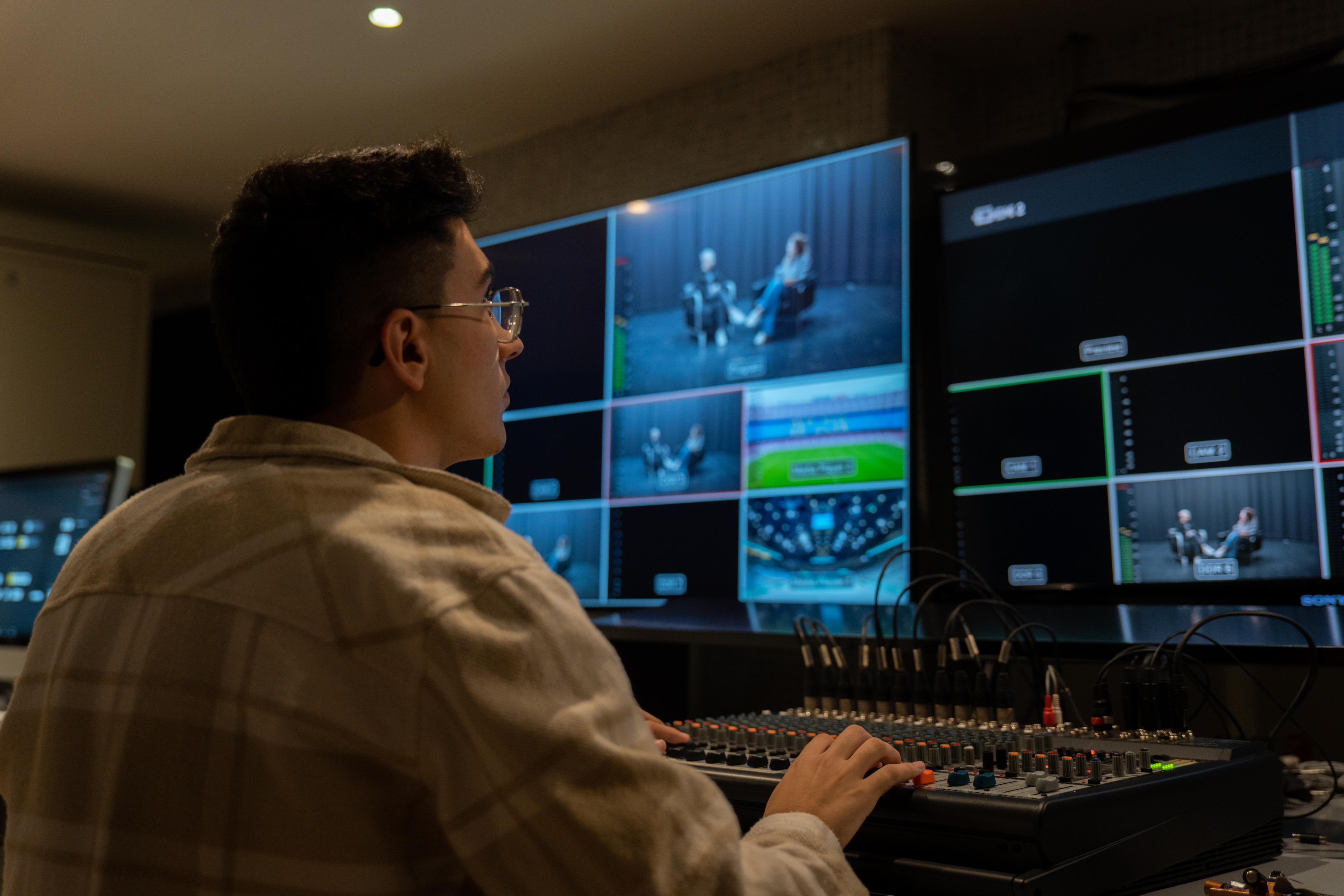
The Curriculum for the bachelor's degree in Audio-visual Communication is made up of basic, compulsory, and elective courses, internships, and a bachelor's thesis divided into 8 semesters (4 years) from September to May. Within this curriculum, you will be able to choose different specialization tracks according to the type of professional profile you want to develop. You can see it in detail below:
| First | Second | Third | Fourth | Total | |||
| Final degree project | 12 | 12 | |||||
| Core curriculum | 49 | 12 | 6 | 67 | |||
| Internships | 12 | 12 | |||||
| Compulsory | 11 | 48 | 39 | 33 | 131 | ||
| Optional | 9 | 9 | 18 | ||||
| Total | 60 | 60 | 60 | 60 | 240 |
| Subject | |||
| First semester | |||
| English 1 | 3 | Compulsory | |
| Seminar I. Introduction to Communication | 8 | Core curriculum | |
| Language I. Catalan Language | 3 | Core curriculum | |
| Language II. Spanish Language | 3 | Core curriculum | |
| Language and Techniques in Image and Sound | 5 | Compulsory | |
| Second semester | |||
| English 2 | 3 | Compulsory | |
| Seminar 2. Narration | 8 | Core curriculum | |
| Language III. Text Types | 3 | Core curriculum | |
| Theory of Communication and Information | 6 | Core curriculum | |
| Annual | |||
| Principles of Audiovisual Communication | 6 | Core curriculum | |
| Principles of Journalism and Corporate Communication | 6 | Core curriculum | |
| Principles of Advertising, Public Relations and Marketing | 6 | Core curriculum |
| Subject | |||
| Third semester | |||
| English 3 | 3 | Compulsory | |
| Seminar III: Audiovisual Communication | 8 | Compulsory | |
| Contemporary Thought | 6 | Core curriculum | |
| General Sociology | 3 | Core curriculum | |
| Information Management | 3 | Compulsory | |
| Aesthetics | 4 | Compulsory | |
| Fundamentals of Script Writing | 3 | Compulsory | |
| Fourth semester | |||
| English 4 | 3 | Compulsory | |
| Seminar IV. Audiovisual Narratives | 8 | Compulsory | |
| Contemporary Political and Social History | 3 | Compulsory | |
| Sociology of Communication | 3 | Core curriculum | |
| Introduction to Economy | 3 | Compulsory | |
| Digital Ecosystems | 3 | Compulsory | |
| Audiovisual Production | 3 | Compulsory | |
| Cinematographic direction | 4 | Compulsory |
| Subject | |||
| Fifth semester | |||
| English V | 3 | Compulsory | |
| Seminar V. Scriptwriting, Production, and Direction | 8 | Compulsory | |
| TV Editing | 3 | Compulsory | |
| Structure of the Cinema Industry | 4 | Compulsory | |
| Applied Script | 3 | Compulsory | |
| Specialization itinerary: Audiovisual Marketing | |||
| Marketing I: Strategic and Operational Marketing | 3 | Optional | |
| Audiences and Markets | 3 | Optional | |
| Specialization itinerary: Audiovisual Journalism | |||
| Corporate Communication | 3 | Optional | |
| Sound Captation and Techniques | 3 | Optional | |
| Specialization itinerary: Audiovisual Technology | |||
| Photo direction | 3 | Optional | |
| Sound Captation and Techniques | 3 | Optional | |
| Sixth semester | |||
| Seminar VI: Scriptwriting, Production, and Direction | 8 | Compulsory | |
| History of Cinema | 4 | Compulsory | |
| Development of Audiovisual Projects | 3 | Compulsory | |
| Narratives and Editing of Genres | 3 | Compulsory | |
| External Interships | 12 | Practicum | |
| Specialization itinerary: Audiovisual Marketing | |||
| Digital Content Strategy | 3 | Optional | |
| Specialization itinerary: Audiovisual Journalism | |||
| Digital Content Strategy | 3 | Optional | |
| Specialization itinerary: Audiovisual Technology | |||
| Postproduction | 3 | Optional |
| Subject | |||
| Seventh semester | |||
| English VI | 3 | Compulsory | |
| Seminar VII: Audiovisual Formats | 8 | Compulsory | |
| Communication Law | 4 | Compulsory | |
| Ethics of Communication I | 3 | Core curriculum | |
| Structure of the Audiovisual Industry | 3 | Compulsory | |
| Final Degree Project I | 6 | Final degree project | |
| Specialization itinerary: Audiovisual Marketing | |||
| Digital Marketing | 3 | Optional | |
| Specialization itinerary: Audiovisual Journalism | |||
| Documentary Narratives | 3 | Optional | |
| Specialization itinerary: Audiovisual Technology | |||
| Documentary Narratives | 3 | Optional | |
| Free elective courses I | |||
| Psychology of Communication | 3 | Optional | |
| International Relations | 3 | Optional | |
| Religious Journalism | 3 | Optional | |
| Off-campus Internship | 6 | Optional | |
| Eighth semester | |||
| Seminar VIII: Audiovisual Formats | 8 | Compulsory | |
| Film Studies | 3 | Compulsory | |
| Ethics of Communication II | 3 | Core curriculum | |
| Trends and Criticism of Contemporary Cinema | 4 | Compulsory | |
| Final Degree Project II | 6 | Final degree project | |
| Free elective courses II | |||
| History of Literature | 3 | Optional | |
| Cross-Cultural Communication | 3 | Optional | |
| Communication, Culture and Spirituality | 3 | Optional | |
| You must choose 6 credits from the free elective courses (I and II) |
| First | Second | Third | Fourth | Total | |||
| Final degree project | 12 | 12 | |||||
| Core curriculum | 43 | 18 | 6 | 67 | |||
| Internships | 12 | 12 | |||||
| Compulsory | 17 | 42 | 42 | 30 | 131 | ||
| Optional | 6 | 12 | 18 | ||||
| Total | 60 | 60 | 60 | 60 | 240 |
| Subject | Credits | Academic type | |
| First semester | |||
| English 1 | 3 | Compulsory | |
| Seminar I. Introduction to Communication | 8 | Core curriculum | |
| Language I. Catalan Language | 3 | Core curriculum | |
| Language II. Spanish Language | 3 | Core curriculum | |
| History of Contemporary Thought | 6 | Core curriculum | |
| General Sociology | 3 | Core curriculum | |
| Theory of Communication and Information | 6 | Core curriculum | |
| Second semester | |||
| English 2 | 3 | Compulsory | |
| Seminar 2. Narration | 8 | Core curriculum | |
| Language III. Text Types | 3 | Core curriculum | |
| Aesthetics | 4 | Compulsory | |
| Sociology of Communication | 3 | Core curriculum | |
| Information Management | 4 | Compulsory | |
| Language and Techniques in Image and Sound | 3 | Compulsory | |
| Subject | Credits | Academic type | |
| Third semester | |||
| English 3 | 3 | Compulsory | |
| Contemporary Political and Social History | 3 | Compulsory | |
| Seminar III. Professional Communication | 8 | Compulsory | |
| Introduction to Audiovisual Communication | 6 | Core curriculum | |
| Introduction to Journalism and Corporate Communication | 6 | Core curriculum | |
| Introduction to Advertising, PR and Marketing | 6 | Core curriculum | |
| Fourth semester | |||
| English 4 | 3 | Compulsory | |
| Introduction to Economy | 4 | Compulsory | |
| New Media | 3 | Compulsory | |
| History of Cinema | 4 | Compulsory | |
| Narrative of Audiovisual Genres | 3 | Compulsory | |
| Seminar IV. Pragmatic Fundamentals of the Language of Image and Sound | 8 | Compulsory | |
| 3 | Compulsory | ||
| Subject | Credits | Academic type | |
| Fifth semester | |||
| English V | 3 | Compulsory | |
| Communication Law | 4 | Compulsory | |
| Seminar V: Specialisation in Audiovisual I | 8 | Compulsory | |
| Cinematographic direction | 4 | Compulsory | |
| Fundamentals of Script Writing | 3 | Compulsory | |
| Audiovisual Production | 3 | Compulsory | |
| Specialization itinerary: Audiovisual Marketing | |||
| Corporate Identity and Culture | 3 | Optional | |
| Specialization itinerary: Audiovisual Journalism | |||
| Audiovisual Information | 3 | Optional | |
| Specialization itinerary: Audiovisual Technology | |||
| Photo direction | 3 | Optional | |
| Sixth semester | |||
| External Interships | 12 | Practicum | |
| Seminar VI: Specialisation in Audiovisual II | 8 | Compulsory | |
| Development of Audiovisual Projects | 3 | Compulsory | |
| Applied Script | 3 | Compulsory | |
| TV Editing | 3 | Compulsory | |
| Specialization itinerary: Audiovisual Marketing | |||
| Fundamentals in Marketing | 3 | Optional | |
| Specialization itinerary: Audiovisual Journalism | |||
| Digital Content Management | 3 | Optional | |
| Specialization itinerary: Audiovisual Technology | |||
| Audiovisual Editing and Postproduction | 3 | Optional | |
| Subject | Credits | Academic type | |
| Seventh semester | |||
| English VI | 3 | Compulsory | |
| Ethics of Communication I | 3 | Core curriculum | |
| Seminar VII: Audiovisual Products and Formats I | 8 | Compulsory | |
| Final Degree Project I | 6 | Final degree project | |
| Free elective courses I | Optional | ||
| Religious Journalism | 3 | ||
| Off-campus Internship | 6 | ||
| Psychology of Communication | 3 | ||
| International Relations | 3 | ||
| Structure of the Cinema Industry | 4 | Compulsory | |
| Specialization itinerary: Audiovisual Marketing | |||
| Digital Marketing | 3 | Optional | |
| Specialization itinerary: Audiovisual Journalism | |||
| Audiovisual Genres and Formats | 3 | Optional | |
| Specialization itinerary: Audiovisual Technology | |||
| Audiovisual Genres and Formats | 3 | Optional | |
| Eighth semester | |||
| Structure of the TV Industry | 3 | Compulsory | |
| Ethics of Communication II | 3 | Core curriculum | |
| Seminar VIII: Audiovisual Products and Formats II | 8 | Compulsory | |
| Trends and Criticism of Contemporary Cinema | 4 | Compulsory | |
| Final Degree Project II | 6 | Final degree project | |
| Free elective courses II | 3 | Optional | |
| Cross-Cultural Communication | |||
| Communication, Culture and Spirituality | |||
| History of Literature | |||
| Specialization itinerary: Audiovisual Marketing | |||
| Audiences and Markets | 3 | Optional | |
| Specialization itinerary: Audiovisual Journalism | |||
| Sound Captation and Techniques | 3 | Optional | |
| Specialization itinerary: Audiovisual Technology | |||
| Sound Captation and Techniques | 3 | Optional | |
| You must choose 6 credits from the free elective courses (I and II) |
| Subject | Credits | Academic type | |
| Annual | |||
| Audiovisual Genres and Formats | 3 | Compulsory | |
| Radio Genres and Formats | 3 | Compulsory | |
| Writing Genres and Formats | 3 | Compulsory | |
| Corporate Identity and Culture | 3 | Optional | |
| Business and Structure of Communication | 4 | Compulsory | |
| Seminar V. Skills and Competences for Production I | 8 | Compulsory | |
| Seminar VII. Specialized Information | 8 | Compulsory | |
| Final Degree Project I | 6 | Final degree project | |
| Theory and History of Journalism | 3 | Compulsory | |
| Basic Principles in Design | 4 | Compulsory | |
| Audiences and Markets | 3 | Optional | |
| Digital Content Management | 3 | Optional | |
| Seminar VI. Skills and Competences for Production II | 8 | Compulsory | |
| External Internships | 12 | Practicum | |
| Reputation, Crisis Communication and CSR | 4 | Compulsory | |
| Advanced Design | 4 | Compulsory | |
| Seminar VIII. Public Relations and Press Office II | 8 | Compulsory | |
| Final Degree Project II | 6 | Final degree project | |
| **In the event that you have studien the Audiovisual Technology track, is not necessary to enroll in Audiovisual Genres and Formats | |||
| **In the event that you have studied the Audiovisual Jorunalism track, it is not necessary to enroll in Audiovisual Genres and Formats and Digital Content Management | |||
| **In the event that you have studied the Audiovisual Marketing track, it is not necessary to enroll in Corporate Identity and Culture and Audiences and Markets | |||
| Track: Business Comunication | |||
| Track studied for GAUD: Audiovisual Technology | |||
| Photojournalism | 3 | Compulsory | |
| Audiovisual Information | 3 | Compulsory | |
| Radio Information | 3 | Compulsory | |
| Journalistic Investigation and Reporterism | 3 | Compulsory | |
| Track studies for GAUD: Audiovisual Journalism | |||
| Photojournalism | 3 | Compulsory | |
| Radio Information | 3 | Compulsory | |
| Journalistic Investigation and Reporterism | 3 | Compulsory | |
| Track estudied for GAUD: Audiovisual Marketing | |||
| Photojournalism | 3 | Compulsory | |
| Audiovisual Information | 3 | Compulsory | |
| Radio Information | 3 | Compulsory | |
| Journalistic Investigation and Reporterism | 3 | Compulsory | |
| Track: Narració Audiovisual | |||
| Track studied for GAUD: Audiovisual Technology | |||
| Photojournalism | 3 | Compulsory | |
| Audiovisual Information | 3 | Compulsory | |
| Fundamentals of Script Writing | 3 | Compulsory | |
| TV Editing | 3 | Compulsory | |
| Track studies for GAUD: Audiovisual Journalism | |||
| Photojournalism | 3 | Compulsory | |
| Fundamentals of Script Writing | 3 | Compulsory | |
| TV Editing | 3 | Compulsory | |
| Track estudied for GAUD: Audiovisual Marketing | |||
| Photojournalism | 3 | Compulsory | |
| Audiovisual Information | 3 | Compulsory | |
| Fundamentals of Script Writing | 3 | Compulsory | |
| TV Editing | 3 | Compulsory | |
| Track: Comunicació Empresarial | |||
| Track studied for GAUD: Audiovisual Technology | |||
| Strategy and Planning in Media | 3 | Compulsory | |
| Fundamentals in Marketing | 3 | Compulsory | |
| Digital Marketing | 3 | Compulsory | |
| Theory and Techniques in Public Relations | 3 | Compulsory | |
| Track studied for GAUD: Audiovisual Journalism | |||
| Strategy and Planning in Media | 3 | Compulsory | |
| Fundamentals in Marketing | 3 | Compulsory | |
| Digital Marketing | 3 | Compulsory | |
| Theory and Techniques in Public Relations | 3 | Compulsory | |
| Track estudied for GAUD: Audiovisual Marketing | |||
| Fundamentals in Marketing | 3 | Compulsory | |
| Theory and Techniques in Public Relations | 3 | Compulsory |
Course fees are paid in installments without any interest. At the time of enrollment, 50% of the total cost of the credits for which the student is enrolled must be paid*; the remaining 50% is split into nine monthly installments (from October to June) payable by direct debit.
The tuition fee / credit of degrees is regularized each academic year for all courses.
Fundació Blanquerna discounts (not cumulative with each other):
In order to apply the discount, you must prove it with the corresponding document. Students must bring the original document in person to the Academic Secretariat, together with their identification document, for validation and application of the corresponding discount.
The deadline for submitting the supporting documentation for the 2026-2027 academic year is September 30, 2026.
A changing landscape full of opportunities thanks to the presence of large digital platforms and the increase in public investment.
The career opportunities for the bachelor's degree in Audio-visual Communication are extensive. According to the Spanish National Statistics Institute (INE), about 70% of audio-visual graduates find work during the first years.
Specifically, at our School, of the students who finished their studies in 2018, 78.1% found a job and 14.7% continued studying. Of those who found work, 76% did so in a field related to communication. In 2019, this last percentage increased to 88%.
Upon completion of their studies, the student will be able to direct/film or produce a film, a TV show, an ad, or a music video. But our alumni also include artistic directors, film editors, directors of photography, and other jobs within the audio-visual team, who have been nominated for Gaudí and Goya Awards.

To undertake and coordinate audio-visual projects in different formats, managing talent, funding, and equipment in order to execute them according to the profile and demands of the audio-visual sector.

To apply narrative and aesthetic construction tools to create projects, the first step in the conception of all audio-visual formats, both fiction and non-fiction.
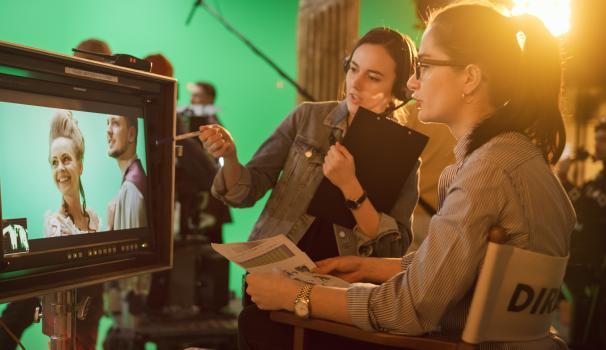
To develop the creative and technical processes used to construct audio-visual fictional and documentary narrative with a distinctive approach.
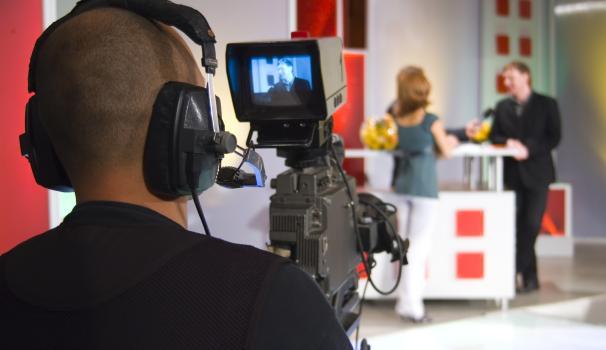
To develop creative and technical processes for directing audio-visuals linked to the world of advertising.
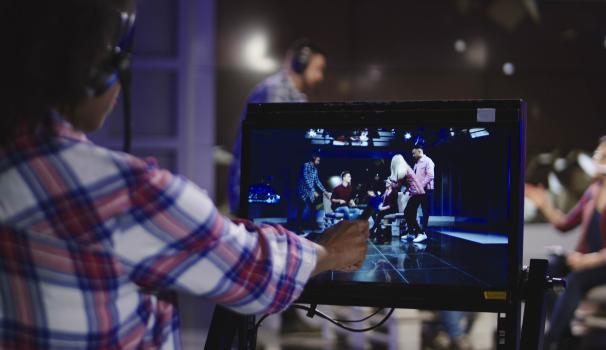
To develop creative and technical processes for directing audio-visuals intended to promote the music sector.

To develop creative and technical processes to construct audio-visual narrative in TV entertainment.
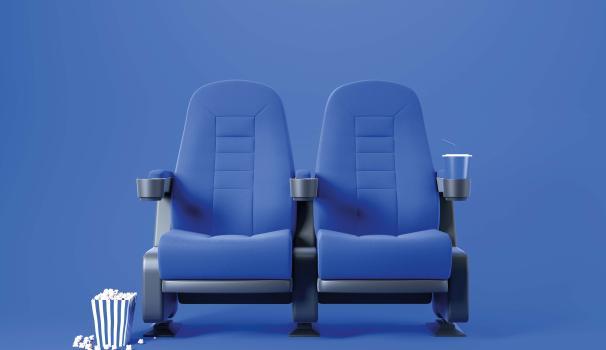
To develop creative and technical processes to construct audio-visual narrative in TV fiction.

To develop creative and technical processes for directing audio-visuals linked to the world of fashion.

To design the creative and technical processes in scenography and visual identity.
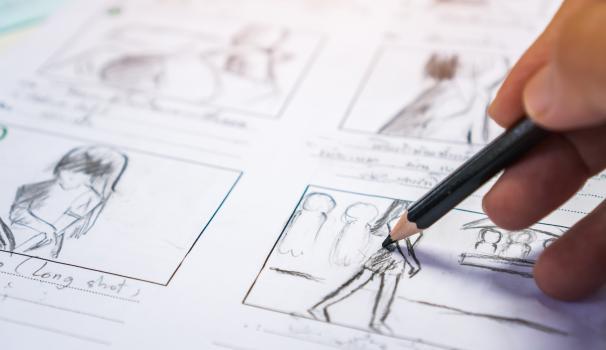
To design the creative and technical processes of the image (camera work and lighting).
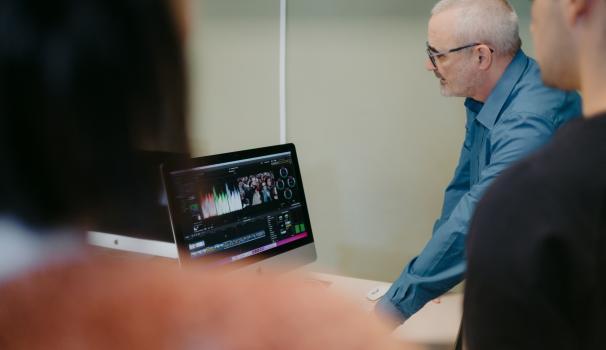
To develop the creative and technical processes used to introduce structure and rhythm in fiction and non-fiction.

To develop creative and technical processes for sound recording and post-production.
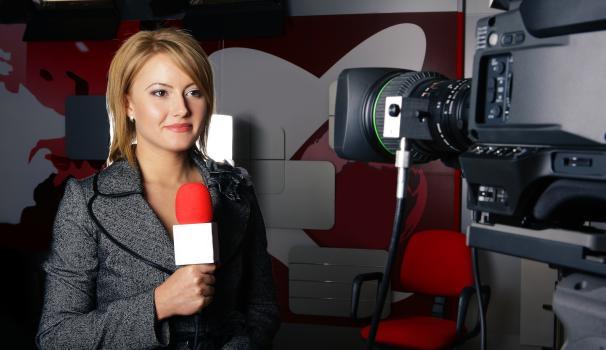
To conduct and present entertainment television programs.
The communication departments of companies and institutions need graduates of this degree in an increasingly visual world and in need of constant audio-visual content.

To undertake and coordinate the creation of audio-visual content to promote business activities.

To undertake and coordinate the creation of audio-visual content to promote activities promoted by public and private organizations.
The Internet has also disrupted the audio-visual sector. For years, there have been alternative career opportunities to work in audio-visual communication without the need to use traditional media.
Graduates from our School will also be able to work on the production and script of video games and in the different areas within new media and transmedia communication

To control the creative and technical processes in the construction of the audio-visual narrative in the context of transmedia content and new interactive platforms.

To undertake projects in the context of the dynamic and growing video game industry, managing ideas, talent, funding, and equipment to make them a reality.
Although the most common career opportunities are in the audio-visual industry, graduates can also pursue their careers in the university and research sectors.
To access university and non-university teaching on film, television, and new audio-visual media.
To get started in research in audio-visual communication and social communication.
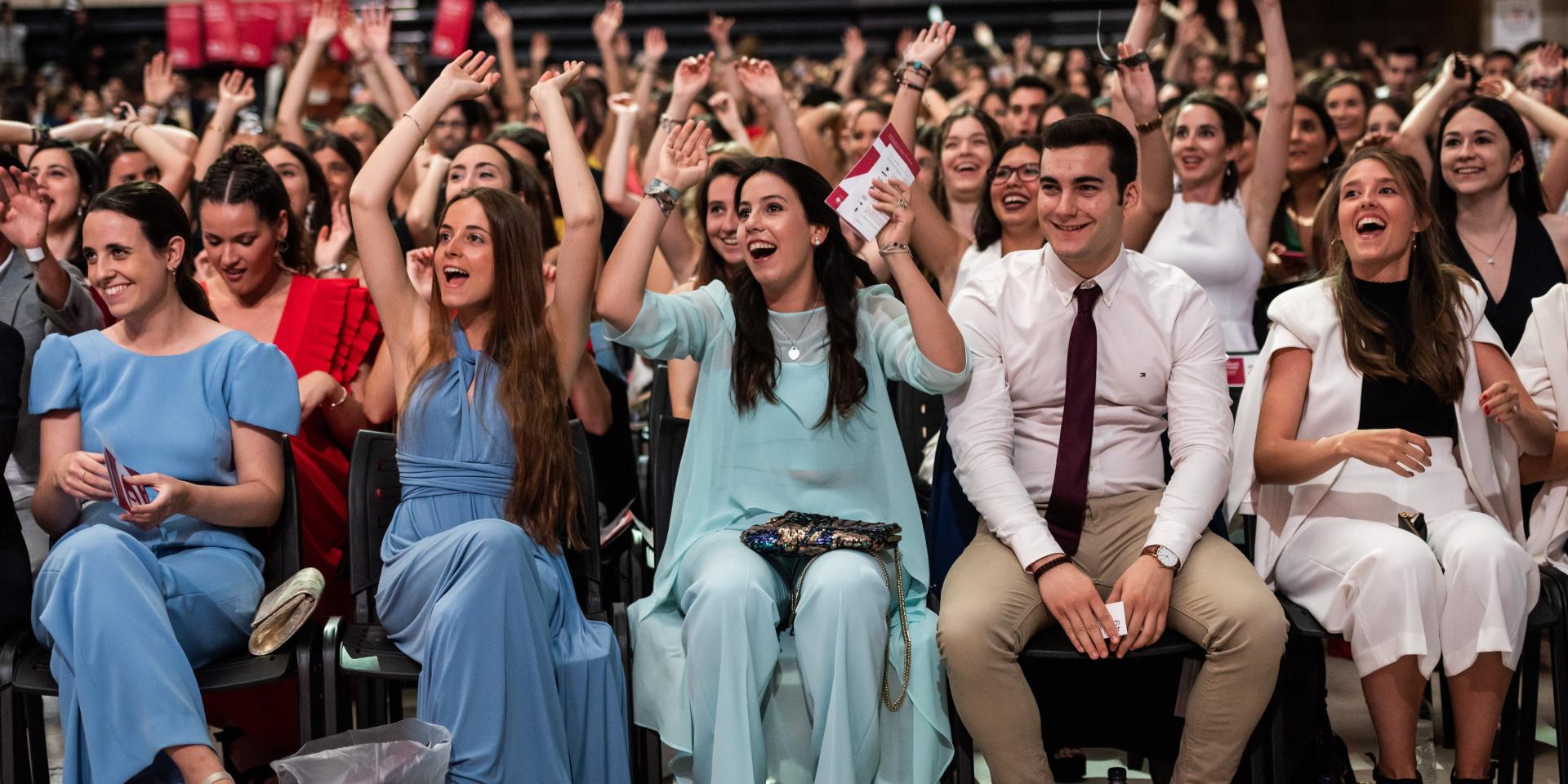
Our work doesn't finish the moment you graduate. The Alumni department will support you to enable us to achieve an employment rate of 90% of students in the first year after graduation
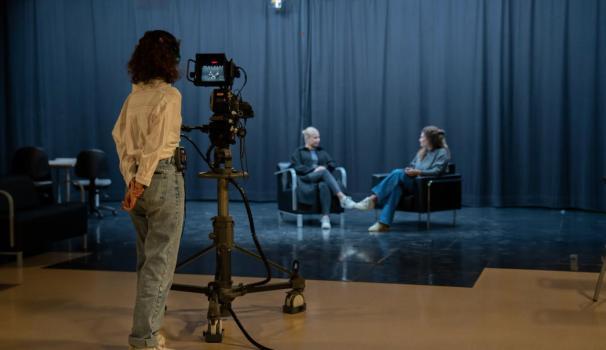
In front of or behind the camera? You can work on any of these skills in the school's two television studios. In addition to the cameras, you can learn how the production room, the lighting and the teleprompter work.

Available for both academic work and personal projects, you will find a total of 9 audio and video post-production rooms at the school, equipped with pioneering programs such as Photoshop, DaVinci Resolve, Final Cut Pro, Premiere Pro, After Effects and Audition.
Going into the world of work having been able to use professional equipment is essential. That's why we provide you with cameras that are used in the Audiovisual Communication and Journalism sectors so that you can learn with professional teams.
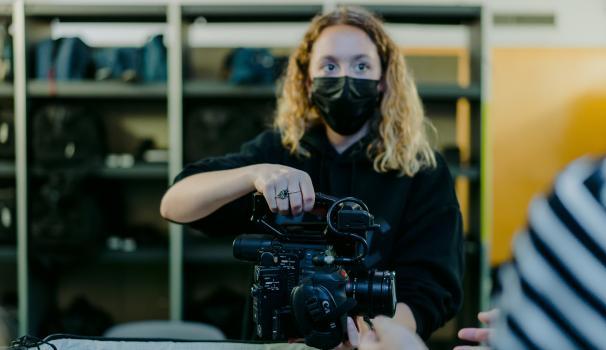
You have a wide range of accessories for professional cameras to get the best results in filming. Remember that you can use it for both personal and academic projects, always making the relevant reservation in advance.
Both image and sound are essential to create a good audiovisual piece. You will find all kinds of equipment for sound recording. The microphones work with XLR connections and cannot be connected to non-professional equipment.
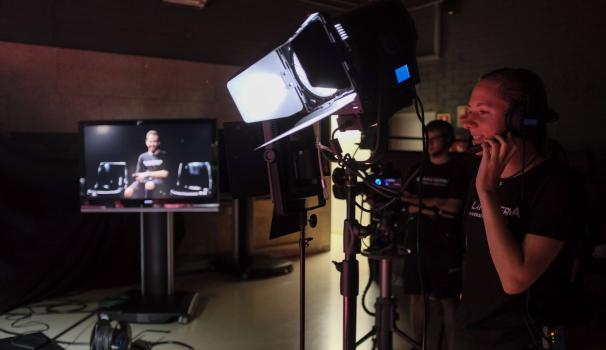
The lighting in the shootings varies in many cases and needs to be adjusted when recording an audiovisual piece. That's why, in addition to video and audio equipment, we offer a variety of lighting accessories.
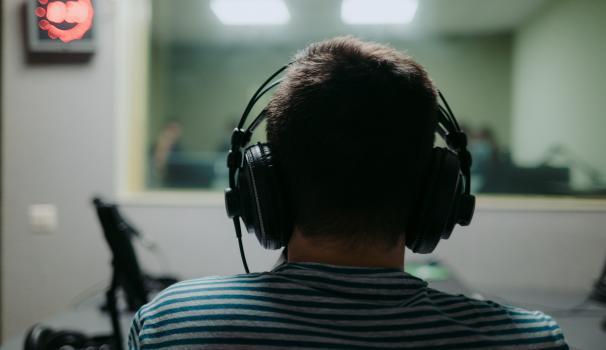
Whether it's broadcasting live or recording a podcast, you'll find all the equipment you need to do radio. The school has two radio studios and three individual workspaces equipped with microphones and telephones for external interviews.
If you have a job or just need a computer, you can go to the computer classrooms or workspaces and use the Macs we have at your disposal.
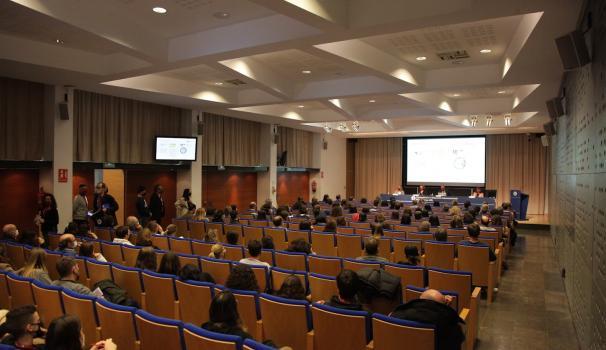
The school has an auditorium that can be used for celebrations, academic events, conferences or activities. In addition to the school's events, the space hosts other occasions that require ample space.
For any communication project, the multimedia laboratory is the perfect room to start making a creative idea or initiative a reality. The room allows reservations for team meetings.
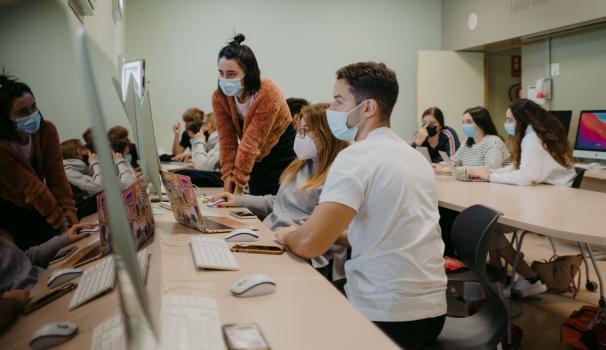
Let your imagination run wild and enter a space of boundless creativity, where you can work to find the best strategy and creative proposal for an advertising project.
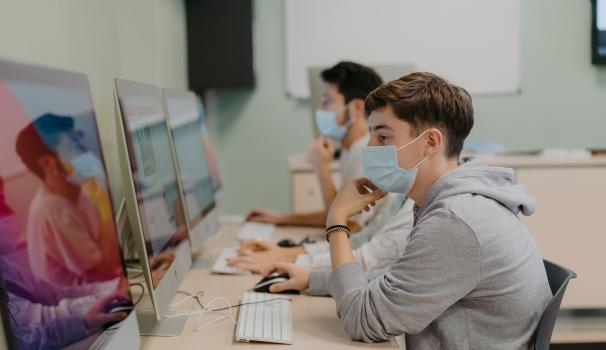
Applying content creation techniques to the web is essential to internalizing knowledge. Journalism, advertising and corporate communication have evolved into the digital environment.
If you need a quiet space to study or to do individual and group work, come to the library! Each school has its own library with computers, workrooms, reading points and an extensive catalog of documents you can consult in both hard copy and digital format.
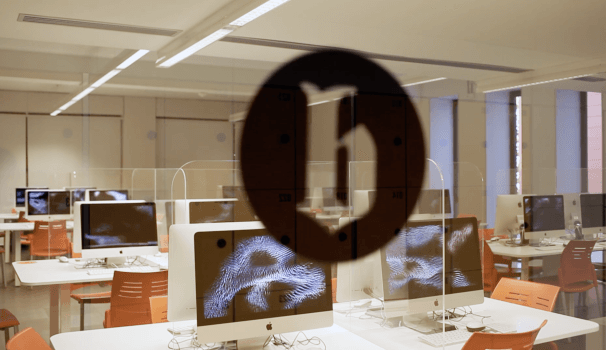
If you have a job or just need a computer, you can go to the computer classrooms or workspaces and use the Macs we have at your disposal.
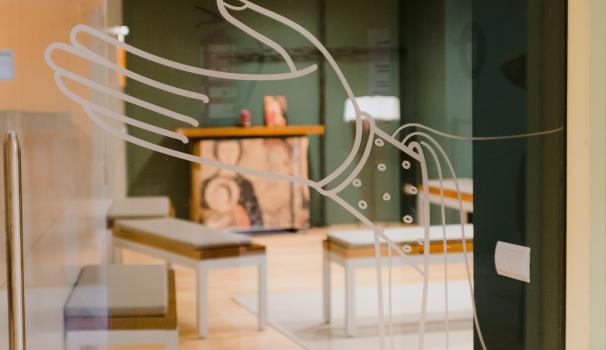
The chapel is the right place to find recollection, peace, to focus, to pray and to celebrate the Eucharist weekly and at important liturgical moments (Christmas, Ash Wednesday and Easter). The sacrament of reconciliation is also celebrated.

Using the latest equipment and audio-visual techniques is part of the learning process and enables students to enter the world of work with a broad knowledge of computer science. For this reason, the schools are equipped with audio-visual material for viewing and editing and a video library.

Ets estudiant o Alumni dels graus en Comunicació o del Grau en Relacions Internacionlals i tens un projecte que requereix equipament tecnològic i assessorament professional? Posem a la teva disposició el programa de mentoring, un servei per donar suport tecnològic i assessorament a aquests projectes.
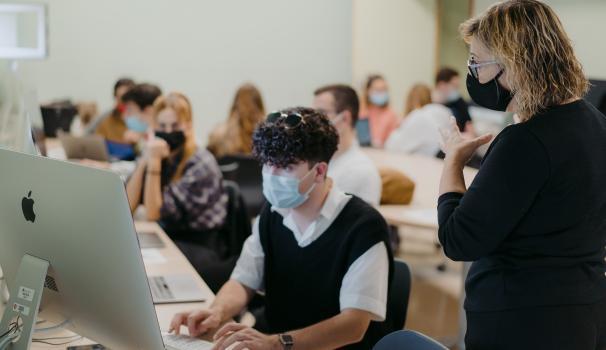
Our facilities include Mac computers, state-of-the-art software, WiFi network and printers to provide students with all the materials they need in their learning process.

Ethics in the field of research is fundamental. The Faculty Research Institutes are supported by the opinions of the Research Ethics Committees (CER-URL) to evaluate and rate projects that have ethical implications.
If you are part of a research group, a professor or a PhD student and you need help with a project, you can ask for advice. This assistance includes analysis, guidance, help with applying for awards, and the financial management of projects.
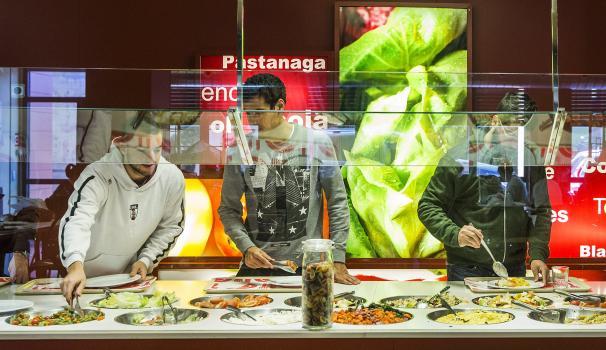
The nerve center of the quintessential faculties is the bar. There, teachers, students and staff meet throughout the day for breaks or meals.
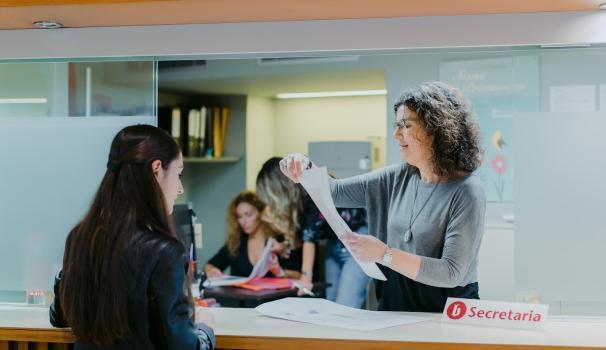
The Academic Secretaries of the Blanquerna faculties are the space for students to relate to the processes linked to the registration of official and own courses.

Would you like to receive information on pre-registration and admissions processes, scholarships and grants or validations? The SIOE is the service you need. Ask for all the information about any of these processes and discover all the possibilities at your fingertips.
Professional experience is a core part of our methodology. For this reason, we have a broad spectrum of internship agreements to meet the needs and preferences of all students. You will graduate having worked in your industry.

At Blanquerna, we put the future within everyone's reach thanks to our scholarships and grant service to start or continue studying at our schools. Financial aid is both internal and external to the university. You will find a wide range of possibilities.
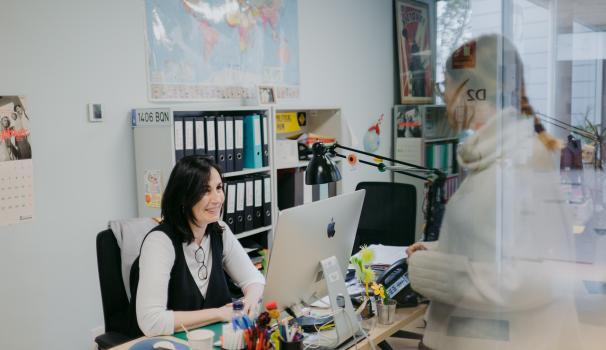
Going abroad is a unique opportunity to discover the plurality of the world. Aware of the importance of the internationalization of studies, we have established mobility agreements around the world.
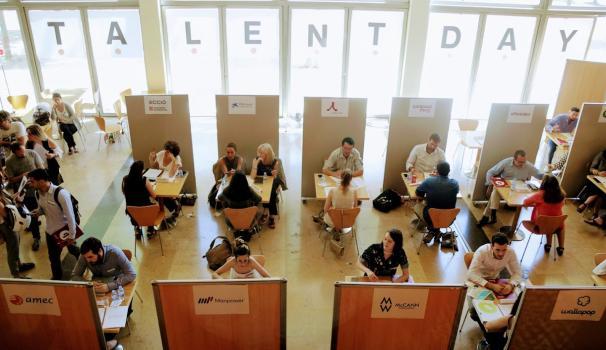
This service provides graduates with the necessary means so that they can actively participate in their professionalism and propose optimal candidates to organizations and companies looking for staff.

The leap into the world of work is always a challenge. For this reason, we provide a Job Bank for students and graduates. This service puts students in touch with companies and institutions looking for staff.
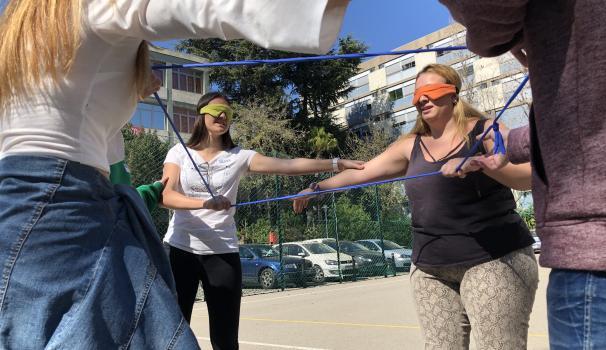
Solidarity and the struggle for human dignity are values that identify us. Solidarity Action is a volunteer program that our students can join to participate in projects in the Third and Fourth World.
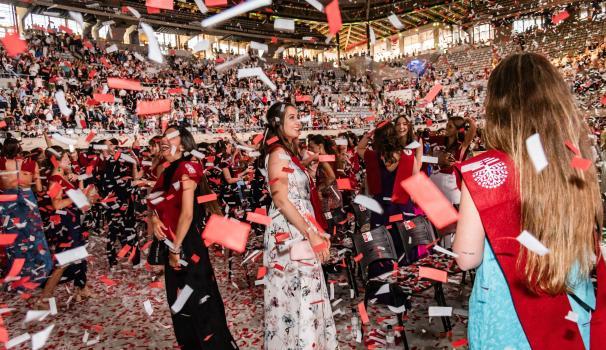
Studying in Blanquerna allows you to be part of our community. Being a college student opens the door to a lot of options for continuing your vocational training beyond your time in the classroom.
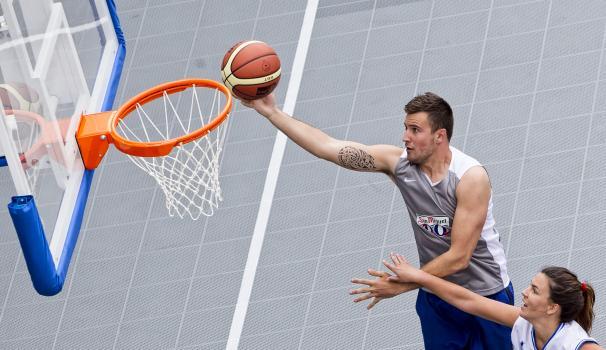
Want to represent the URL in college sports tournaments? You can find a wide range of possibilities for both individual and team sports. To be a student of Blanquerna, you will have a discount at the Can Caralleu and La Salle Sport & Fitness sports complexes.

If you are in a difficult situation in the academic, personal or social field, you can request, free of charge, the personalized attention of the SOP. This is an interdisciplinary team of professionals who will guide you in dealing with the situation.
In the three Blanquerna faculties, you will find spaces for reflection isolated from the hustle and bustle dedicated to the celebration of the Faith or cultural and religious animation. If you wish, you can also receive personalized attention and information about church life.
At Blanquerna we promote personal development at all levels to people with a diversity of specific needs from a normalizing context that encourages personal autonomy and uniqueness.
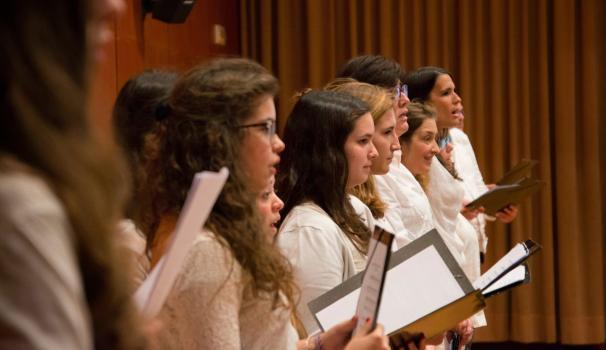
If you like music and want to take part in the concerts of institutional events and festivities, sign up for the Blanquerna Choir. There you will meet new friends and enjoy music.
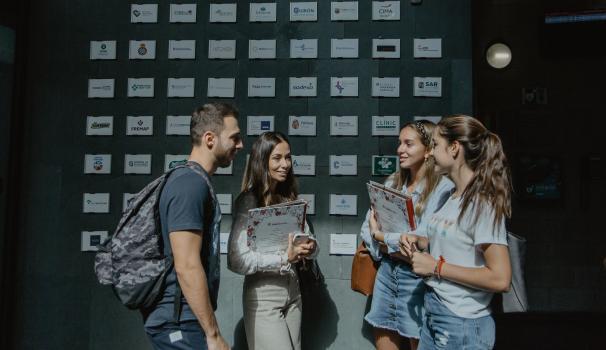
Each class group must elect a representative to put forward concerns or make proposals to the faculty members and academic management. At the same time, each degree must appoint a delegate and each school a representative on the general URL council.
Contact between students and the university is constant and is channeled through the Student Council, the body that collects proposals and requests from students and facilitates university life.

Are you studying a foreign language and want to improve your level? Do it at your own pace in the language self-learning classroom. This service offers various teaching resources and materials to practice the language.
Judith Colell Pallarès
Cristian Marc Alegre Antón
Lluís Anyó Sayol
Sue Aran Ramspott
Montserrat Arbós Figueras
Sonia Ballano Macías
Andrea Ballesteros i Beato
Hugo Jordi Ballón Marco-Bach
Sandra Balsells Cubells
Pilar Baradat Marí
Serena Rachel Barkham
Jaume Benet Busquets
Alain G.F. Blomart
Ignasi Boada Sanmartín
Jordi Botey López
Josep Maria Brugues del Moral
Jordi Busquet Duran
Francesc Canosa Farran
Juan Pablo Capilla Garcia
Joan Joaquim Carreras Goicoechea
Xavier Casals Meseguer
Juan Cuenca Fontbona
Joaquim Cuixart Valero
Andrea Daza Tapia
Fernando de Felipe Allué
Sonia de Jaime Rodríguez
Rafael De Ribot Torrella
Núria Escalona Nicolas
Daniel Esparza Olivero
Mayka Fernández López
Josep Galindo Solé
Salvador Garcia Arnillas
Uri Garcia Medalla
Oriol Gispert Lafuente
Iván Gómez García
Francesc Grané Terradas
Marta Grau Rafel
Joan Antoni Hernandez Blade
Diane Hoyle
Ricardo Iscar Álvarez
Oriol Izquierdo Llopis
Juan Ramón La Parra Martínez
Carlos Lamelo Valera
Juan Ignacio Marcet Gisbert
Marta Marín Anglada
Oriol Massegú Blanch
Alfonso Medina Cambrón
Ramon Millà Bruch
Esteve Miralles Torner
Carlos Monte Salvador
Gemma Morató Sendra
Bartolomé José Moya Olives
Jacint Niqui Espinosa
Anna Maria Nogué Regàs
Núria Olivé Bellés
Tracey Owen
Lluís Pastor Pérez
Susana Pérez Soler
Jaume Peris Llimona
Ronald Wayne Pfeil Stackpoole
Josep Maria Picola Meix
Patricia Plaja Pérez
James William Pownall Graumann
Jaume Radigales Babí
Alba Ramírez Pagès
Carles Riera Fonts
Marc Roig Badia
Jordi Roigé Solé
Marc Rosado Salvador
Ivan Rosquellas Carrion
Alba Sabaté Gauxachs
Joan Sabaté Salazar
Ferran Sáez Mateu
Sílvia Sáez Sánchez
Josep Sala Colom
Aníbal Salazar Anglada
Jordi Sànchez Torrents
Josep Vicent Sanchis Llàcer
Eva Santana López
David Serrano Blanquer
Carla Subirana Jiménez
Joan Tharrats Pascual
Francesc Jesús Viadel Girbés
Francesc Vilallonga Montaña
Elisa Vivas Soto
Jennifer Weiss
Ursula Frances Wolf
Enric Xicoy Comas
Elena Yeste Piquer
Klaus Zilles
La Facultat de Comunicació i Relacions Internacionals Blanquerna-URL, conscient de la dimensió europea dels estudis que ofereix, ha presentat diversos projectes en l’àmbit de la internacionalització des del curs 1997-1998, que inclouen els programes de mobilitat d’estudiants de quart curs dels graus de Comunicació i Global Communication Management, i de tercer curs de Relacions Internacionals, i el programa d’intercanvi de professors i personal administratiu.
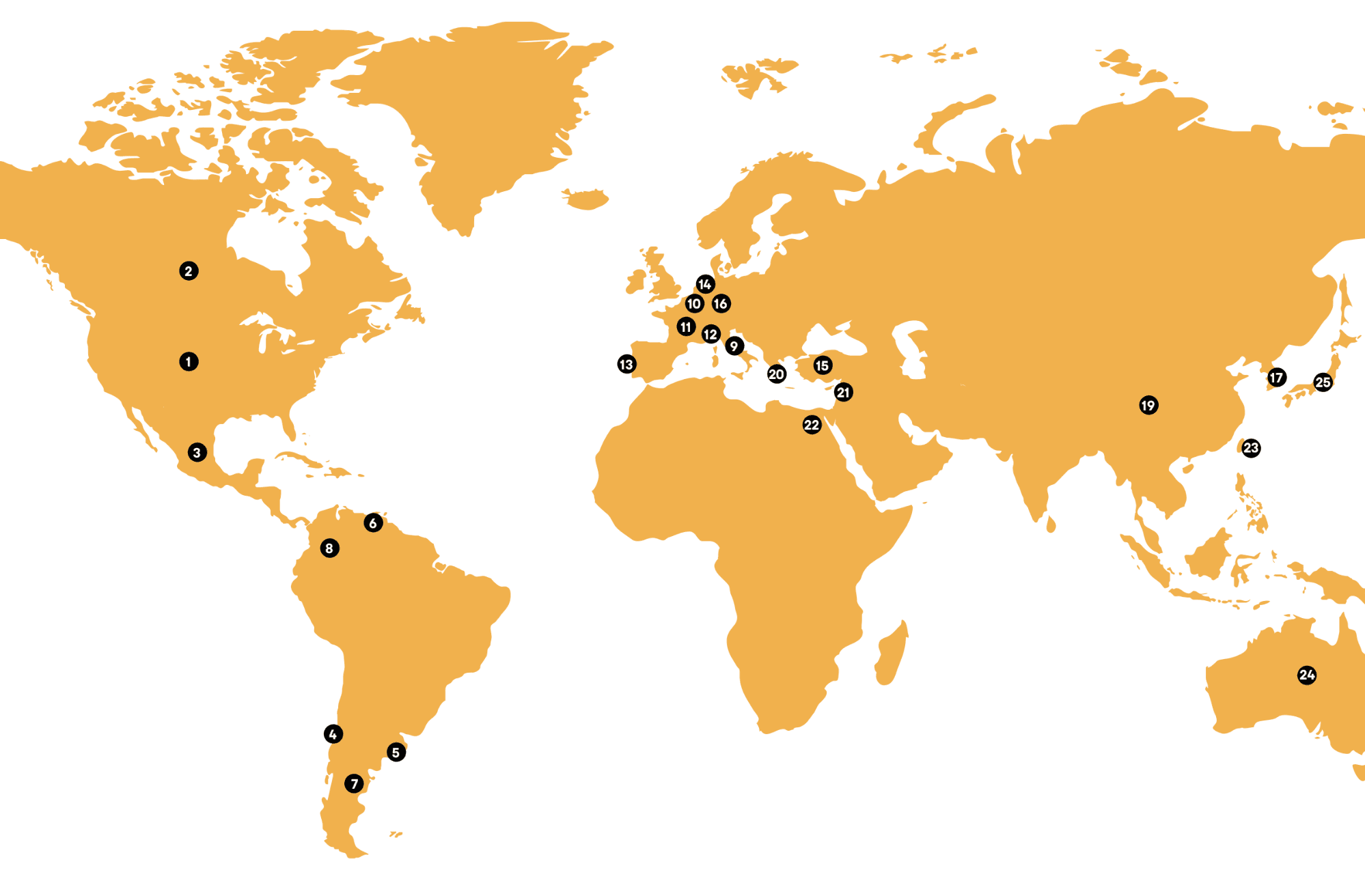
The application process for a place in the 2026-2027 academic year begins on October 29, 2025, and consists of three phases:
The application for a place can be made online or in person and entitles the applicant to participate in the admission process.
It can be done via the Application for admission button on the page for each degree, or directly from here, and requires:
It can be done at the School itself, by going to the Student Information and Guidance Service (SIOE), and the following must be submitted:
Approximately within two working days after the place application, the student will be informed by email about their admission. If admitted, the same message will invite them to formalize enrollment, including instructions on when and how to complete the procedure.
The criterion used to call admitted students to formalize enrollment will be the order of payment of the place application. For degrees with more than one shift, note that a shift may fill up during the enrollment period. The place will be definitive once the student has submitted the documentation with the final university entrance information and the first enrollment payment has been made.
For degrees taught in English, students must demonstrate a minimum B2 level of English to be admitted. The level can be accredited through the level test that all degree students must take before starting their program. To prove the minimum level, an official language certificate of B2 or higher can also be submitted: IELTS (6-7), TOEFL (IBT 90-110), CAMBRIDGE, or Official Language Schools, obtained within the last two years. Certificates from other organizations will not be accepted. The certificate does not exempt students from taking the level test to determine the English level for the first year.
It is the student's responsibility to have a level equivalent to B2 in the language of instruction of the degree to properly follow classes
The student called to enroll may choose between two options, depending on whether they already have the definitive entrance pathway or not.
Enrollment in the degree can be formalized before passing the PAU (University Entrance Exams) or CFGS or having the entrance pathway. Enrollment will be conditional on the presentation of the corresponding admission pathway. This option secures the place and allows choosing the shift, in the case of degrees with more than one shift, while places are available.
If the student does not obtain the entrance pathway, the enrollment fee will be refunded, but they will lose the place, preference in shift selection, and the amount paid for the place application (€50). If places remain available in July, they may choose to stay on the waiting list until September, and the money will be held, but they will no longer have preference for shift selection. If they do not obtain the entrance pathway by September, the enrollment fee paid will be refunded.
It will be formalized if, at the time of processing the enrollment, the student already has the university entrance pathway. They may opt for the available places and shifts.
IMPORTANT: Degrees with more than one shift may exhaust places in a specific schedule with conditional enrollment. The required documentation must be uploaded via the Document Repository.
The place will be definitive once the student has submitted the documentation with the final university entrance information and the first enrollment payment has been made.
NOTE: Students in the Communication Degrees must take an English level test that will not be exclusionary for admission but will determine the level at which they start the first year. Each student will be informed of the test date and time by email.
Studies can be paid upfront and/or in interest-free installments. If payment by installment is selected, upon enrollment the student will have two business days to pay 50% of the total cost of the enrolled credits, using their chosen form of payment; this payment will not be taken by direct debit. The remaining 50% will be divided into nine monthly payments from October to June via bank direct debit from the account provided at the time of enrollment. Prices for each academic year are updated annually.
Once payment is made, the corresponding receipt of enrollment can be viewed in the student's Document Repository and via the student's portal.
For the foreign student admission process, the following considerations and requirements must be taken into account in accordance with the prevailing regulations.
Students must apply to the Universidad Nacional de Educación a Distancia (UNED) to obtain the credential certifying that they meet the requirements to access university studies within the state education system (UNED Credential). Therefore, they do not need to take the PAU (University Entrance Exams), but without the mentioned credential, they cannot enroll in our degrees.
The education systems that can be accessed through this pathway are: Germany, Andorra, Austria, European Schools (European baccalaureate), International Baccalaureate, Belgium, Bulgaria, Croatia, Denmark, Slovakia, Slovenia, Estonia, Finland, France, Greece, Hungary, Ireland, Iceland, Italy, Latvia, Liechtenstein, Lithuania, Luxembourg, Malta, Norway, the Netherlands, Poland, Portugal, the United Kingdom, the Czech Republic, Romania, Sweden, Switzerland, China and Cyprus.
These students may access our degrees by submitting the homologation of the High School diploma from the Spanish Ministry of Education or from the autonomous communities with transferred competence, such as the Generalitat de Catalunya. Proof of application for convalidation will be sufficient for students to enroll and begin taking a bachelor's degree course, however full enrollment is conditional on convalidation being confirmed. Bear in mind that convalidating studies can take more than three months to complete, so this process should be done in parallel with the admissions process to our bachelor's degrees. If the convalidation resolution is not obtained in the terms requested by the interested party, the results of any exams taken, or the enrollment made as a result thereof, are rendered null and void.
For any questions or inquiries about the place application or enrollment process, contact [email protected]
The bachelor's degree thesis, which the student works on during the final year of the bachelor's degree, is a group project planned and executed with the same standards of excellence as any professional project within the audio-visual sector. With the curriculum development culminating in the bachelor's thesis, our students are ready to work on any national or international audio-visual production.
The thesis is written during the fourth academic year and has its own seminar. The student decides the topic and type of thesis. To write the thesis, the student can decide to do a research project or design an intervention program that will be tutored throughout the academic year by a professor-tutor specializing in that area.
The topics may be related to any of the areas of the profession and, where applicable, may also be linked to the center where the student is doing the internship or to the School's research groups.
The work will be conducted individually. Projects must be written in Catalan, Spanish, or English. In any case, the work will have to include a summary in English, Catalan, and Spanish.
There will be three grading systems and assessment times:
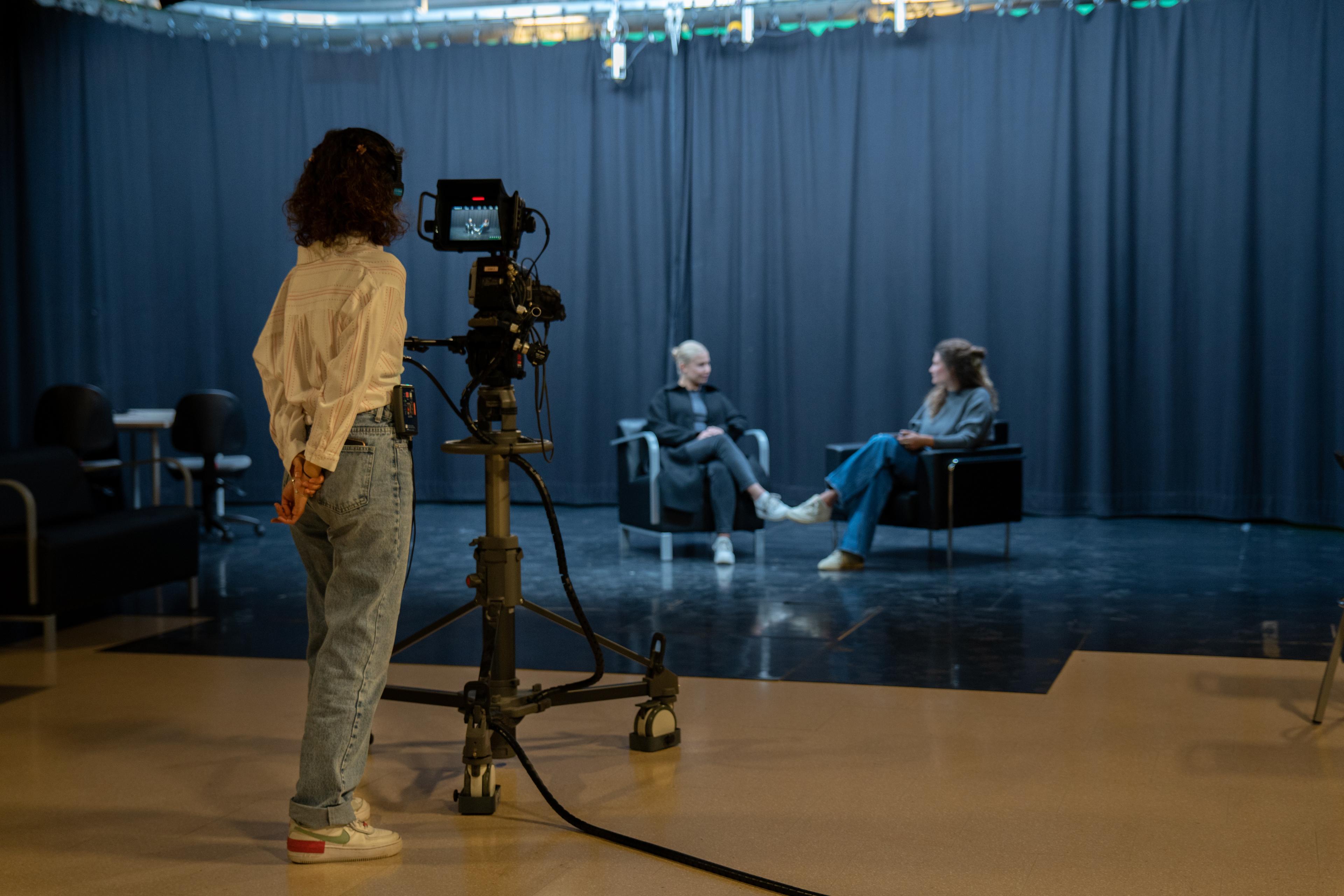
Find the help that best suits your needs between Blanquerna scholarships and grants, public and private grants or funding grants.
Blanquerna-URL is waiting for you!
External internships at companies and institutions are a key part of the learning process. They represent the student's initial direct contact with the professional world where they will be able to apply the knowledge gained at School.
023 Think. Create. Produce 8TV Abemus Digital Acadèmia Cinema Català Acteon Adolescents.cat Agosto TV Allstaff Ananda Project Andromines de TV Antaviana Film Antena 3 APM Apuntolapospo Arpa Films Arriska Films Asociació Rosa Sensat Badalona Comunicació Barça TV Batabat (SOM) Bausan Films Benecé Benecé News B-engaged Betevé Blua Brutal Media Camille Zonca Canadá Films Canal Reus Capricci Films CCCB Chiquita Room Cinefilms Clúster Audiovisual de Catalunya Concert Studio Contracorriente Films Coolmap Corte y confección de películas Crampton Diagonal TV Digit BCN Droneit El Mundo Today El Nacional.cat El Terrat EPEL Cugat.cat Esade Escola Eòlia ESMUC Euroleague Factotum Fasten Films Festival de cinema de Sitges Festival Mecal Filmax Filmin Filmoteca Catalunya Films de l'Orient Flic Festival, Tantàgora FNAC Fugim de les Fronteres Fundació Montblanc Gadea Films GAN Gastronomía y Nutrición Garage Films Gestmusic GlassWorks Good company Goroka TV Got Talent Havas High Video Honda Humannova group Hypnotic vfx I am trader Igluuu Studio Ikiru Films Incipy Incís Films Infinia Inicia Films Inlens Media La Caixa La Central de Actores La fábrica de la Tele La Fábrica Naranja La Lupa La Vanguardia Lab. 8-85 Labonne Maison Lastor Films Lavínia Linkia Talentia Link-up Loto Films MACBA Mamba Media Màrketing Space Massa D´Or McCann Media 3.14 Mediacrest Mediadata Mediapro Mega TV Minimal Films Minoria Absoluta Monkey Films MUF Animation Mundo Deportivo Nebext Neptuno Films Neven NH Hoteles Nómada 57 Oberon Media Ogilvy Orbita MAX Ottokar Planeta Playground Polar Star Films Producciones Kilimanjaro Promarfi Futuro 2010 SEAT Segarra Films Séptimo Elemento Serielizados Seven Milia Som (Batabat) Sónar Stories by Susana Guardiola Sweatbox The Dream The production club TheCreative Tiempo BBDO Toma 78 Tree House BCN Triacom Aud Turkana Films TV Girona TV Sant Cugat TV Vilafranca TV3 TVE Utopía Global Vela Films. Claudia Llosa · Veranda TV · Versus Entertainment · Vértice 360 · Vivir para ver · Waaau TV · Xarxa Televisions Locals · Zoopa Films
There are two types of external internships: curricular and extracurricular.
Curricular internships are those that form part of our curriculum: these are compulsory internships that are taken in parallel to seminar VI during the second semester of third year and the elective ones taken during the first semester of fourth year. The seminar VI professor is the advisor who will supervise the evolution of the student in their internships and guide them throughout the process. In the fourth year elective courses, the internship coordinator will appoint a faculty member to conduct a follow-up of the student. In the company, students will also have an advisor appointed by the center who will supervise their learning.
Extracurricular internships are all others that the student can do electively outside the curriculum, although they also have an exclusively training and teaching purpose and will therefore be included in the European Diploma Supplement (EDS). In all cases, the internship must be compatible with the student's class hours. Internships may or may not be remunerated, depending on the company or institution.
In the following links you will find the program of the curricular internships.
Students also have the opportunity to do internships abroad through different agreements with companies via programs such as Erasmus+.
The curricular and extracurricular internships are regulated by point 17 of the school's academic regulations.
The student's advisor in the school will provide students with the criteria to follow to successfully pass the internship course and the parameters for drawing up the internship report. Here is the guide to writing the report.
This must be done by contacting the School's Internship Service.
Degree follow-up reports
Center follow-up report
Student surveys
Faculty surveys (research and teaching staff)
Administrative and service staff surveys
Evidence relating to employer satisfaction
Job bank and careers
URL Student mobility
As the European Union points out, gender equality is not only a matter of social justice but also affects the results of teaching and research. Promoting gender equality in research and innovation is one of the European Commission's commitments, and it supports the explicit integration of a gender perspective in Horizon 2020 projects. However, this recommendation is often poorly understood and misapplied. Various documents are presented here with a view to contributing to a better understanding and application of the gender perspective in teaching and research.
RELATED PROGRAMS
We equip you for change


